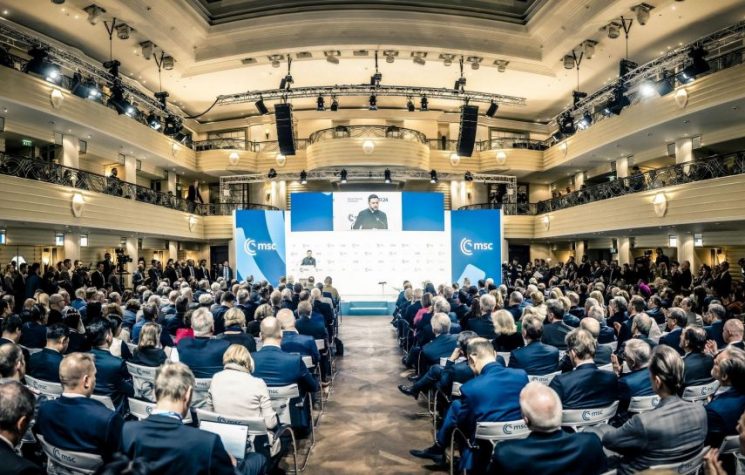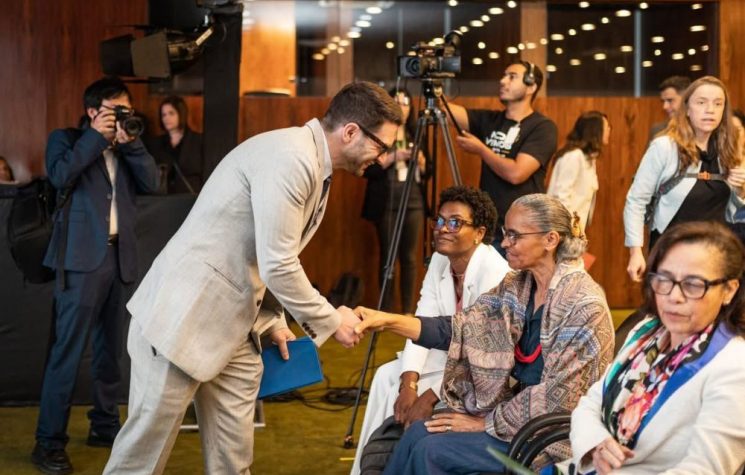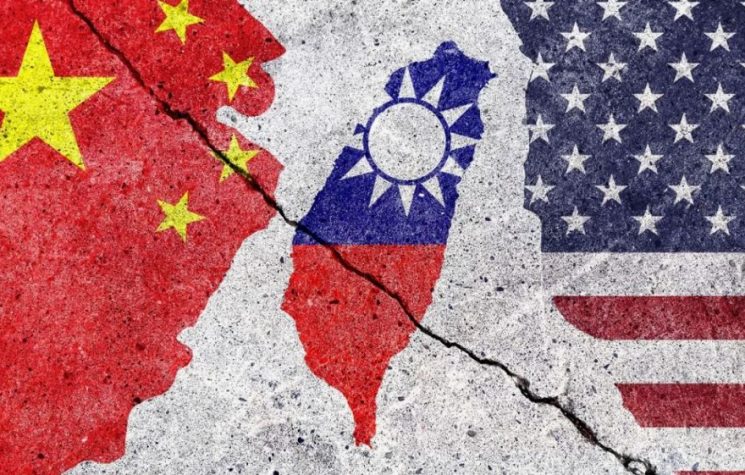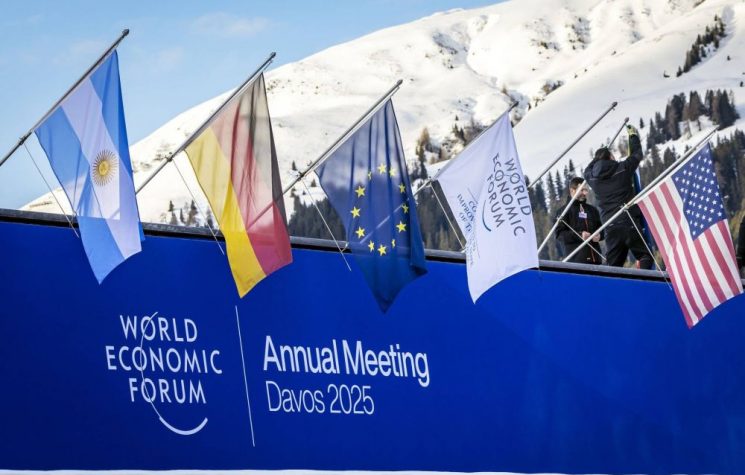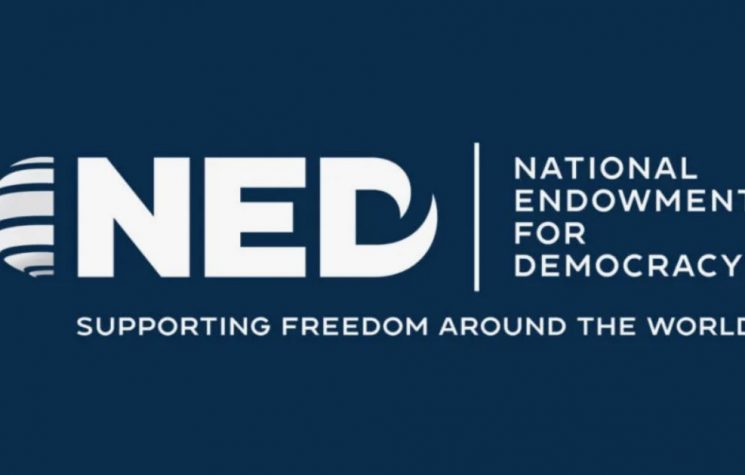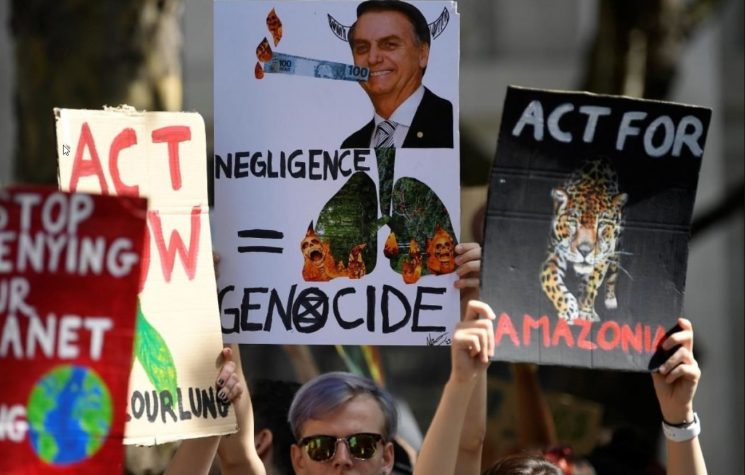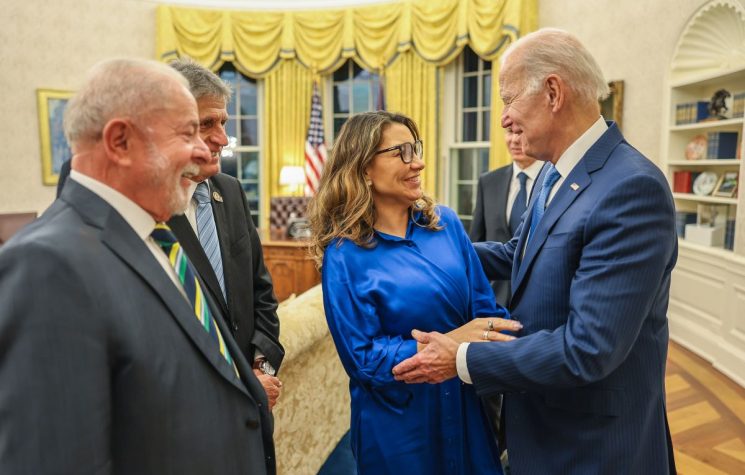Let’s do what we’ve been doing for a decade and hope for a different result
Join us on Telegram![]() , Twitter
, Twitter![]() , and VK
, and VK![]() .
.
Contact us: info@strategic-culture.su
Apparently, there is no evidence that Albert Einstein ever said ‘the definition of insanity is doing the same thing over and over again and expecting different results’. And yet the aphorism rings true whenever a neocon think tank produces a new report with prescriptions on how to engage with Russia.
Such was my response when I recently read Russian Reality Check: how to destabilise the Kremlin, published by the UK-based Henry Jackson Society in April.
It offers no new ideas and everything it suggests has been tried before.
Specifically, it proposes that Europe redoubles its efforts to pile economic pressure on Russia, stoke internal dissent and regime change, ramp up cyber and covert warfare inside of Russia, get Russia’s neighbours onside and, somehow, get the developing world to agree that this approach will work to their benefit.
These prescriptions are made against the backdrop of a reduction in American enthusiasm for the Ukraine war under Trump.
Pausing there briefly, reduced U.S. support for Ukraine has already shaped a new reality of less money, fewer weapons, a reduction in cyber capabilities and military enablers, and credibility on the world stage as America increasingly votes with or, at least, not against Russia in the United Nations. All of these factors mean that Europe needs to spend more and work harder even to maintain the current stance towards a war in Ukraine that Russia is winning on the battlefield.
So, the real question is, having put huge effort into all five pillars of containment of Russia since 2014, what makes the author begin to believe that it will work today without American help?
What are the implications of ‘more of the same’ for Europe’s economic health at a time when the continent is deindustrialising through imposed high energy prices?
And what does this mean for European political movements at a time of an accelerating shift to the left and right as ordinary people fear the increasingly warmongering and democracy-stealing tendencies of the elites?
No consideration is given to these wider risks and political trends in the report. Like many think tank reports, grand schemes are articulated with no thought either to their cost, political sustainability or, critically, how Russia will respond. We are invited to assume an arithmetical response from Moscow in which the sum of western inputs vastly outweighs Russian resolve and its political will to resist, to the point where the Russian political system eventually collapses.
That calculus has at no point been accurate since the Ukraine conflict started in late 2013.
Dipping briefly into the five pillars of the report the first covers economic warfare and how to squeeze the Kremlin’s resources. Since 2014, western powers have imposed unprecedented sanctions against Russia. Sanctions have changed the structure of Russia’s economy, undoubtedly with the movement to a war footing and the agglomeration of production in state-run entities. This has crowded out the SME sector. Yet Russia’s economy continues to grow, despite challenges of inflation and high interest rates.
And the economic tactics that Europe has used, specifically on energy supply, have led to soaring prices, economic stagnation and deindustrialisation in Europe.
The report does not touch on the economic risks to Europe itself and no economic data is explored.
Rather, readers are invited to believe that after eleven years of pressure which has left European economies weakened, that further pressure will be enough to change Putin’s mind.
Placing sanctions on Russia’s so-called shadow fleet has not materially impacted Russian export revenues and the author provides no information about how additional measures might do so now. Secondary sanctions, i.e. imposing gigantic tariffs on countries that trade with Russia (along the lines of the U.S. Bill currently being steered by Senator Lindsey Graham) appears no more likely to work than Trump’s trade tariffs have so far, which is not at all.
Some of the economic prescriptions are fundamentally flawed. The author suggests ‘encouraging capital flight from Russia would further exacerbate economic instability’ by offering relocation incentives for business elites. And yet, many wealthy Russians resident in Europe today have had their assets frozen, even if they spoke out against the war. Any businessman who has remained in Russia will undoubtedly fall foul of UK Sanctions Legislation, by having made a profit in Putin’s war economy. Indeed, they would be more exposed than Russian businessmen already resident in Europe when war started, who have themselves been sanctioned. How many wealthy Russians will really trust the UK and EU enough to move their assets upon the vague and vain promise that this might weaken Putin? I would suggest none.
A key plank of the economic pressure is an absolute determination to expropriate the currently frozen $300bn in Russian reserves, mostly held in Belgium. There is a fear that should Russia make concessions in peace talks, the pressure might build for these assets to be returned. ‘Yet if at negotiations Russia did make concessions to get the assets back then European states would be left to foot the reconstruction bill for Ukraine.’ In other words, a peace deal between Russia and Ukraine would be expensive by pushing responsibility for reconstruction costs onto Europe.
So, rather than end the war and pay the price, seize the Russian assets now, even though this would encourage Russia to continue fighting to Ukraine’s disadvantage and at a much greater cost long-term, to Europe. And even though this would do immeasurable damage to the credibility of the European financial system.
The author recognises that if the U.S. reduces it sanctions against Russia, Europe would see a reduction in sanctions effectiveness’. It nevertheless argues for a continuance of sanctions anyway, without exploring whether current sanctions actually work.
Recognising the risk that countries such as Hungary and Slovakia may at some point break sanctions consensus and bring the house of cards down, the report argues that ‘the EU must change voting rules so Russia-aligned politicians in Hungary and Slovakia are not able to stop EU decision-making.’ Nothing cries Europe’s promoting democracy in Russia more than making decision making processes are less democratic in Europe.
Moving on to the other four pillars, the report calls for supporting the Russian opposition and stoking internal dissent. Here, the author pushes for more funding for media and opposition groups that create an alternative voice for Russian voters.
But have we not been funding NGOs and alternative media channels in Russia for over a decade without success? And with the huge cut to USAID funding to foreign NGOs bent on regime change around the world, how would European governments make up the funding gap, just to allow this activity to continue at its current rate?
The author argues among other things for building an ‘opposition in exile’. Acknowledging that ‘the opposition-in-exile lacks legitimacy in Russia’ he argues that ‘elections to a council-in-exile voted on by the Russian diaspora would bestow legitimacy on these groups’. Yet he does not explain the source of an exiled government’s legitimacy. I would venture to argue that this would be in the hearts and minds of western globalists, rather than among the rump of the Russian people.
Covert and cyber operations are called for, to take the fight to Russia. Yet, the report does not acknowledge that this type of activity is already a significant part of western governmental effort towards Russia, through organisations such as Britain’s GCHQ, America’s NSA and others.
Troublingly, and published before the Ukrainian spiders web drone attack on Russia’s strategic bombers, the author argues for European governments actively funding and supporting Ukrainian sabotage operations inside of Russia. ‘Over the past year, mysterious fires, train derailments, and unexplained industrial accidents have increasingly targeted Russian supply chains, weapons factories, and fuel depots. Many of these incidents have been attributed to Ukrainian partisans – like Atesh in the Russian-occupied areas of Ukraine – and anti-Kremlin insurgents. But their impact could be significantly amplified with direct European intelligence, funding, and logistical support.’
So, Britain and Europe should as an article of policy, fund and help to orchestrate further sabotage attacks inside of Russia. No thought is given to how Russia might respond in asymmetric ways to the knowledge that western governments were paying for acts of sabotage and terrorism inside of Russia. But having been at the British Embassy in Moscow when the 2018 Salisbury nerve agent attack happened, I’d suggest that Russia would fund and support similar activity in our countries.
The other two pillars, encouraging Russia’s neighbours to apply more pressure and trying to isolate Russia on the world stage have both been central planks, at least of UK strategy, since 2014. No thought is given to how this might work today, against the backdrop of the rapid growth of the BRICS grouping of developing countries.
The Henry Jackson Society is a neocon think tank that is closely associated with the UK Conservative Party, Boris Johnson wrote the foreword to its 2019 manifesto setting out a vision for Global Britain. And its possible to see the hand of Johnson in the idiotic prescriptions of this latest report on Russia.
Of course, if you have read one neocon think tank report on Russia you have read them all. This report might just as easily have been written by the Atlantic Council or the Institute for the Study of War. The author paints an oversimplified world in which Europe maintains a proxy war in Ukraine with money it does not have, with no thought to a Russian response which it does not predict. While claiming to reduce threat to Europe from Russia, it seeks to antagonise Russia to such an extent that was becomes self-fulfilling. That, I fear, is insanity.













